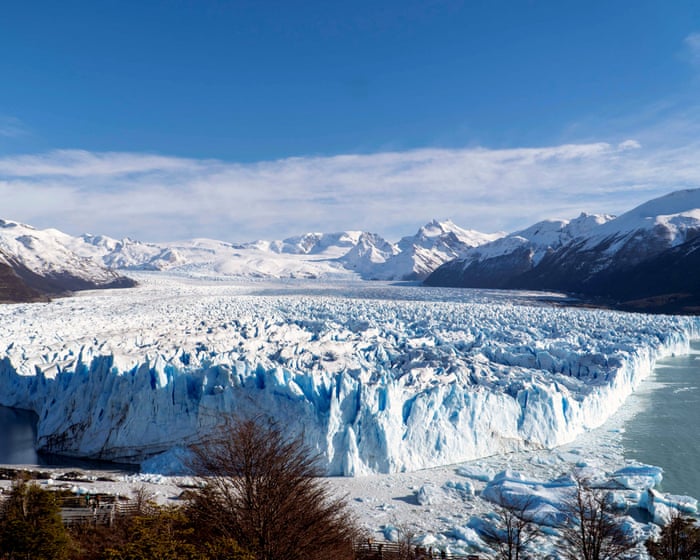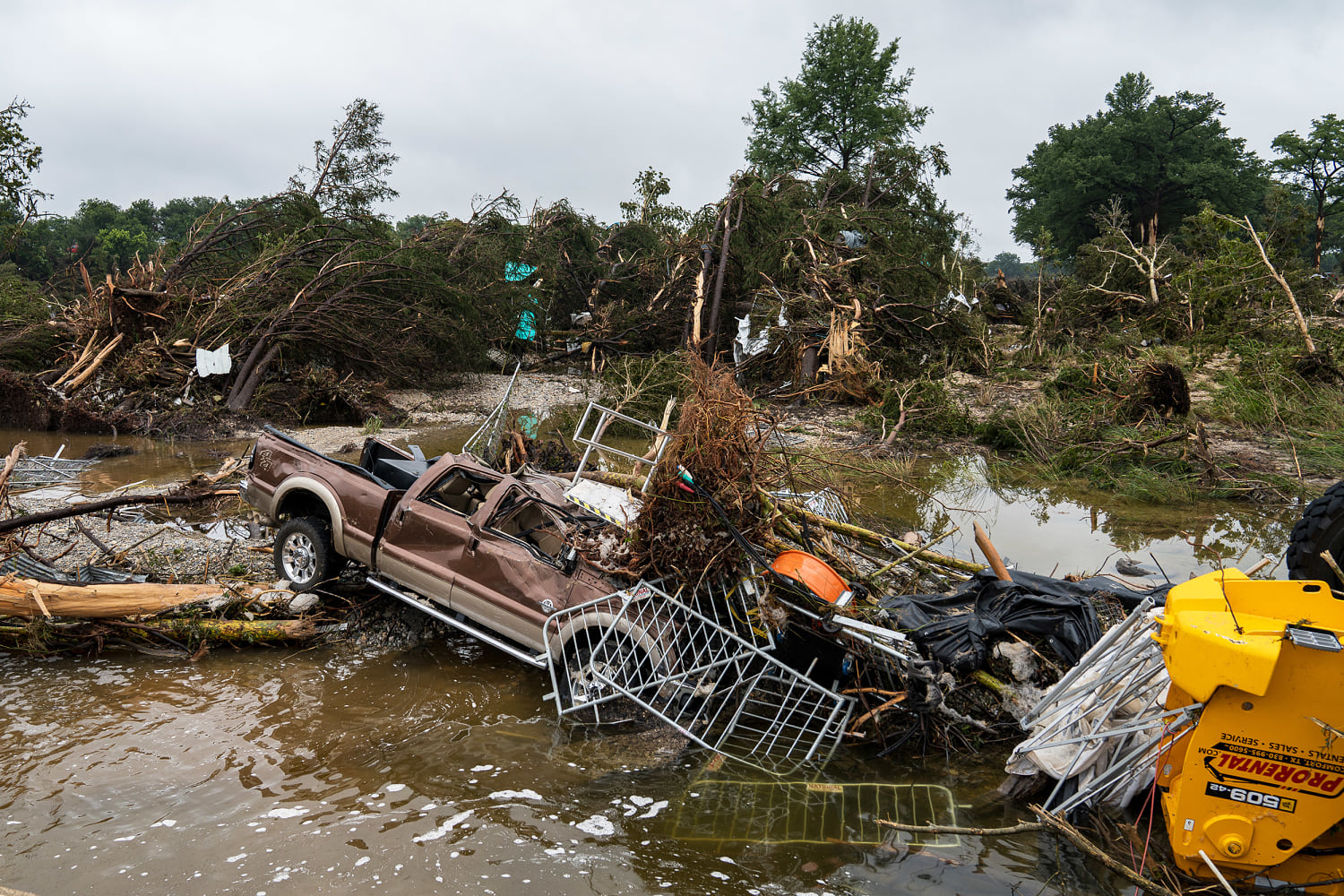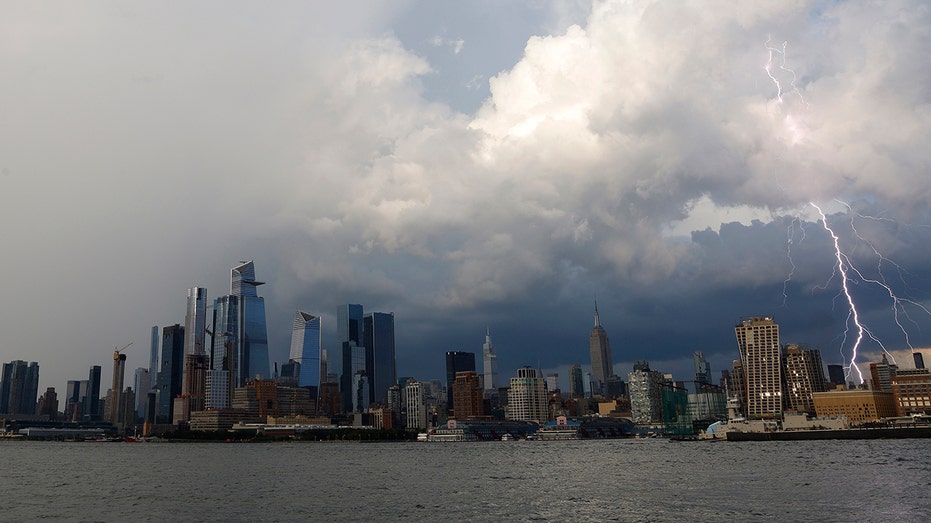See what’s trending right now
Climate Changein U.S News
7 hours agoClimate crises escalate as Patagonia's 'stable' glacier faces irreversible decline and the U.S. endures multiple rare extreme storms, sparking debates over disaster response priorities.
U.S News
‘It can’t withstand the heat’: fears ‘stable’ Patagonia glacier in irreversible decline
negativeU.S News
The Perito Moreno glacier in Argentina—once a rare holdout against global glacial retreat—is now shrinking fast, with scientists warning it may never recover. Over the past seven years, it’s lost nearly 2 square kilometers of ice and is thinning by up to 8 meters annually. This sudden decline shatters its reputation as a climate-resistant "stable" glacier.
Editor’s Note: Glaciers are like the planet’s vital signs—when even the hardiest ones start failing, it’s a flashing red light. Perito Moreno was a symbol of resilience, so its decline underscores how aggressively warming is rewriting the rules. For locals and ecosystems relying on glacial water, and for anyone tracking climate tipping points, this isn’t just another melting ice cube—it’s a wake-up call.
U.S. rocked by four 1-in-1,000-year storms in less than a week
negativeU.S News
The U.S. has been hit by an unprecedented series of extreme storms—four so-called "1-in-1,000-year" weather events—in less than a week, starting with catastrophic flooding in Texas. These freak storms, which statistically should be vanishingly rare, are pummeling communities back-to-back, raising urgent questions about climate change and disaster preparedness.
Editor’s Note: When "once-in-a-lifetime" disasters start happening multiple times in a single week, it’s a flashing red signal that something’s off. Scientists have long warned that climate change would make extreme weather more frequent and intense—and this feels like that prediction coming to life in real time. Beyond the immediate devastation, it forces us to ask: Are our infrastructure and emergency systems built for this new normal?
Texas congressman: Focus should be on ‘recovery’ before evaluating gaps in flood prevention
neutralU.S News
Texas Congressman Nathaniel Moran is urging a focus on immediate recovery efforts before diving into critiques of flood prevention systems. The Republican lawmaker, who recently co-sponsored a bill to improve rural weather monitoring, spoke on Meet the Press NOW about the aftermath of devastating floods in his state. His stance emphasizes addressing current needs while hinting at future policy discussions.
Editor’s Note: Floods are becoming more frequent and severe, especially in rural areas with outdated infrastructure. Moran’s push for recovery-first rhetoric reflects a practical approach—help people now, fix systems later—but it also raises questions about whether long-term prevention will get sidelined. For Texans rebuilding their lives, this balance between urgency and planning is anything but theoretical.
CNN polling guru surprised majority of Americans 'aren't afraid' of climate change
neutralU.S News
Despite years of warnings from scientists and activists, a CNN poll reveals that most Americans still aren't scared of climate change—and that number hasn’t budged since 2000. Even the network’s own polling expert seemed caught off guard by the data, suggesting climate campaigns might be missing the mark when it comes to swaying public urgency.
Editor’s Note: If fear is supposed to drive action on climate change, this poll hints that the current messaging isn’t working. It raises tough questions: Are people numb to the warnings, or do they just not see climate threats as immediate? Either way, it’s a wake-up call for how we talk about the crisis.
As SoCal bakes, UCLA study shows duration of heat waves is accelerating faster than climate change
negativeU.S News
A new UCLA study reveals that heat waves in Southern California aren't just getting hotter—they're lasting longer, and at a rate that's outpacing overall climate change trends. It's not just about rising temperatures anymore; it's about how much longer we're stuck sweating through them.
Editor’s Note: This isn't just another "climate change is bad" story—it's about how the impacts are accelerating in ways we didn't fully expect. Longer heat waves mean bigger risks for health, energy grids, and daily life, especially in places like SoCal where extreme heat is already a reality. It's a wake-up call that the problem might be unfolding faster than we planned for.
NOAA nominee discusses extreme weather amidst agency cutbacks
negativeU.S News
Just as Texas reels from catastrophic floods, nominees for top NOAA positions faced tough questions from senators about the agency’s ability to handle extreme weather—especially since it’s staring down steep budget cuts and staff reductions.
Editor’s Note: This isn’t just bureaucratic drama—it’s about whether the agency tasked with tracking hurricanes, floods, and other disasters will have the resources to do its job as climate change fuels more extreme weather. Cuts now could leave communities even more vulnerable when the next crisis hits.
Why World Pulse Now?
Global Coverage
All major sources, one page
Emotional Lens
Feel the mood behind headlines
Trending Topics
Know what’s trending, globally
Read Less, Know More
Get summaries. Save time
Stay informed, save time
Learn moreLive Stats
Articles Processed
9,221
Trending Topics
145
Sources Monitored
211
Last Updated
3 hours ago
Live data processing
How it works1-Minute Daily Briefing
Stay sharp in 60 seconds. Get concise summaries of today’s biggest stories — markets, tech, sports, and more
Why World Pulse Now?
Global Coverage
All major sources, one page
Emotional Lens
Feel the mood behind headlines
Trending Topics
Know what’s trending, globally
Read Less, Know More
Get summaries. Save time
Stay informed, save time
Learn moreLive Stats
Articles Processed
9,221
Trending Topics
145
Sources Monitored
211
Last Updated
3 hours ago
Live data processing
How it works1-Minute Daily Briefing
Stay sharp in 60 seconds. Get concise summaries of today’s biggest stories — markets, tech, sports, and more




